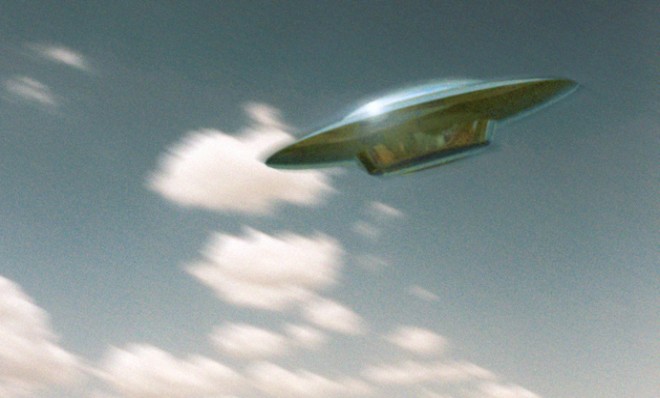Why the British gave up looking for UFOs
The Ministry of Defence stopped investigating reports in 2009 — even though sightings were surging


A free daily email with the biggest news stories of the day – and the best features from TheWeek.com
You are now subscribed
Your newsletter sign-up was successful
Do you still believe?
If so, don't bother telling the British government. The U.K. Ministry of Defence has released newly declassified files on why it closed its UFO desk in 2009, despite the fact that it was a banner year for UFO sightings. Britons reported the most sightings — around 600 — since 1978, when Steven Spielberg's Close Encounters of the Third Kind hit movie theaters (there were 750 sightings that year).
Among the 4,400 pages of documents is a memo that sums up the justification for the move. Writing to then-Defense Minister Bob Ainsworth in November 2009, Carl Mantell of the Royal Air Force said that in more than 50 years, no UFO sighting report had "ever revealed anything to suggest an extraterrestrial presence or military threat to the U.K."
The Week
Escape your echo chamber. Get the facts behind the news, plus analysis from multiple perspectives.

Sign up for The Week's Free Newsletters
From our morning news briefing to a weekly Good News Newsletter, get the best of The Week delivered directly to your inbox.
From our morning news briefing to a weekly Good News Newsletter, get the best of The Week delivered directly to your inbox.
By the military's reckoning, the explosion in reports of visiting extra terrestrials was a primary reason for shutting it down. Following up on the sightings "produces no valuable defense output," Mantell wrote. "The level of resources diverted to this task is increasing in response to a recent upsurge in reported sightings, diverting staff from more valuable defense-related activities."
What, exactly, were people reporting to the UFO desk? One person sent in a photograph of a suspected UFO near Blackpool. A child wrote in to ask whether aliens exist, saying she had seen strange lights. She illustrated the missive with a drawing of an alien in a UFO.
Another alert citizen reported spotting something fishy at Stonehenge. "I didn't see anything in the sky at the time," the person wrote, "because I was focusing upon the stones. Upon uploading [the pictures] to my computer, though, I spotted the discoid shapes in the background... I'm sure you get this kind of thing every day! However, I'm very fond of my UFOs so needed to share them!"
The files also provided a clear picture of what caused the exponential jump in sightings. One contributing factor was hardly surprising: With the growing ubiquity of smartphones, officials said more people were snapping photos of things they found suspicious and sending them in. "There are lots of examples in here where people are really, really excited about some orange light that they see in the sky," UFO historian David Clarke said in a YouTube video.
A free daily email with the biggest news stories of the day – and the best features from TheWeek.com
Another cause of the spike in sightings was a bit less predictable. "In the end it was not aliens which overwhelmed the Ministry of Defence's UFO unit but a rather more mundane tormentor — Chinese lanterns," says Jasper Copping at Britain's Telegraph. The newly released files include papers revealing that the department "was closed after becoming inundated with reports from the public about the flying flammable devices which have become popular at weddings and parties."
Harold Maass is a contributing editor at The Week. He has been writing for The Week since the 2001 debut of the U.S. print edition and served as editor of TheWeek.com when it launched in 2008. Harold started his career as a newspaper reporter in South Florida and Haiti. He has previously worked for a variety of news outlets, including The Miami Herald, ABC News and Fox News, and for several years wrote a daily roundup of financial news for The Week and Yahoo Finance.
